Language shapes thought. Many expressions seem harmless, yet their backstories reveal injustice and suffering. Below are seven innocent-sounding slang phrases with shockingly dark histories.
Understanding these origins helps prevent perpetuating hurtful ideas, and invites more thoughtful speech.
Table of Contents
In a nutshell
- Common phrases hide ugly pasts: everyday speech can trace back to slavery, segregation, racism, and ableism.
- “Sold down the river,” “peanut gallery,” and “grandfather clause” all originate in Jim Crow and slave-holding eras.
- Slurs like “gyp” and terms like “no can do” were born from racial prejudice against Romani and Asian communities.
- Even “rule of thumb” and “lame” carry contested or offensive backstories tied to domestic violence and ableism.
SlangWise Tip: Words carry history. Before using everyday expressions, consider their roots, and choose with care.
So, What are these Innocent-Sounding Slang Phrases With Shockingly Dark Histories
1. Sold Down the River

Sold down the River is a way to say someone’s been betrayed or given a bad deal.
Origin: During the U.S. slave trade in the 19th century, plantation owners in the Upper South (Virginia, Maryland) would literally ship enslaved people “down the river” (the Mississippi) to harsher cotton plantations in the Deep South.
Families were torn apart; conditions were brutal and often deadly. When someone today is “sold down the river,” it echoes that betrayal and ultimate cruelty.
Sourced from the U.S. Slavery and the Cotton South section on History.com.
2. Peanut Gallery
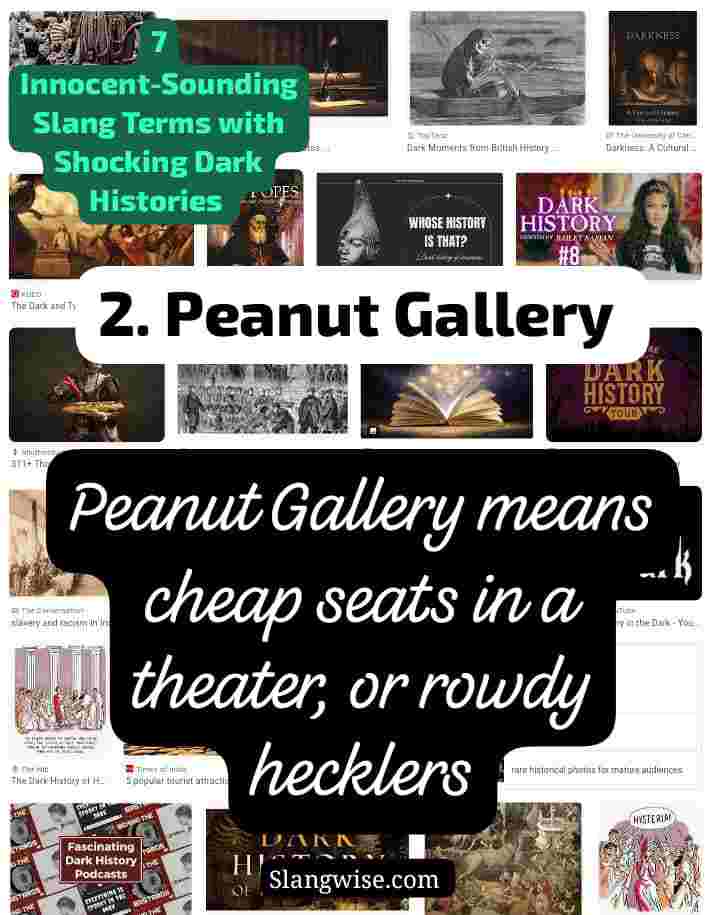
Peanut Gallery means cheap seats in a theater, or rowdy hecklers.
Origin: According to Britannica, in segregated American theaters of the late 1800s, Black patrons were confined to the cheapest, highest balconies. They could only afford or were only allowed “peanut gallery” seats.
Their laughter and jeers were dismissed, but the term stuck, and today it often refers to unruly onlookers, unintentionally recalling enforced separation and racial inequality.
3. Grandfather Clause
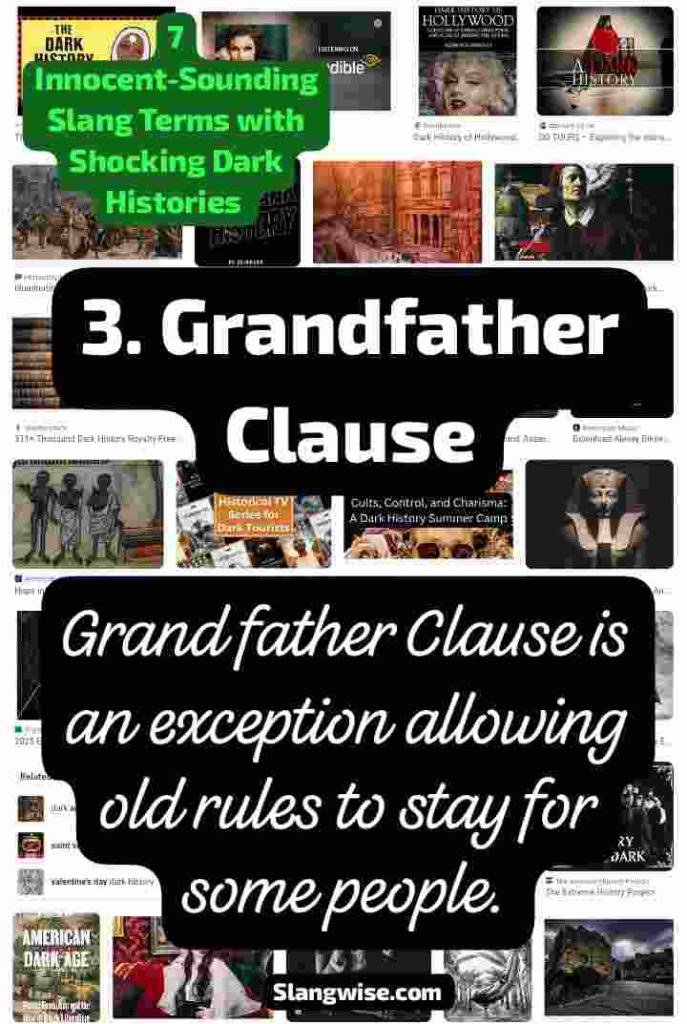
Grand father Clause is an exception allowing old rules to stay for some people.
True origin: After Reconstruction, several Southern states passed voting laws (poll taxes, literacy tests) that barred most Black citizens from voting.
To protect illiterate or poor white voters, they added a “grandfather clause,” exempting anyone whose grandfather had the right to vote before 1867, when only white men could vote. This legal loophole cemented white supremacy in voting for decades.
Reference: The Smithsonian’s National Museum of African American History and Culture outlines these Jim Crow strategies.
4. Gyp (or Gypped)
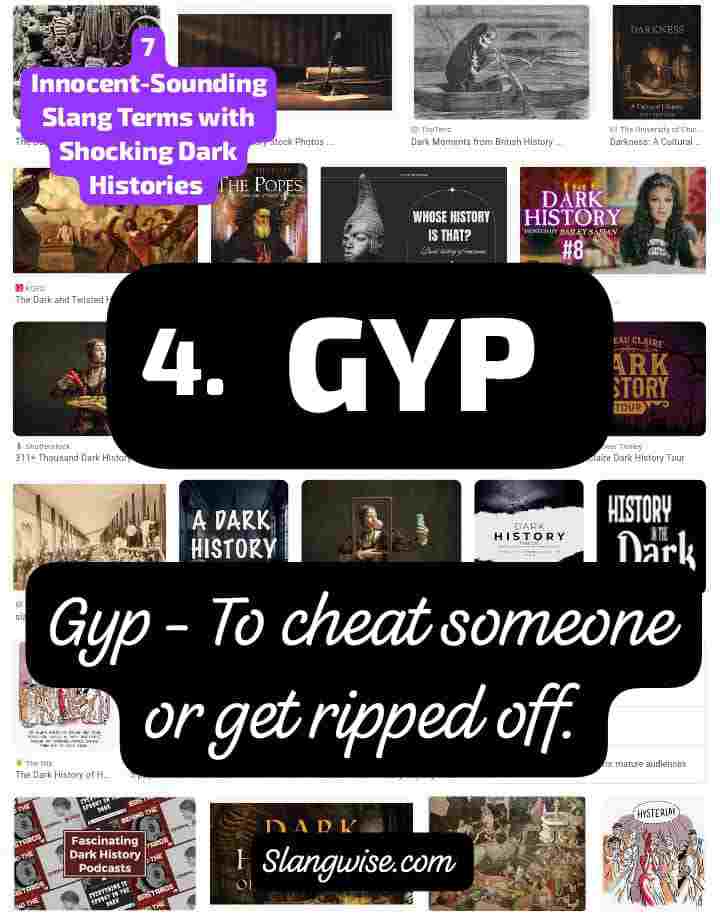
Gyp: To cheat someone or get ripped off.
True origin: This term stems from “Gypsy,” a slur against the Romani people, long stereotyped as thieves or swindlers.
Using “gyp” perpetuates a negative caricature of an entire ethnic group. Although many dictionaries list it as slang, awareness is growing that it offends and isolates Romani communities.
Additionally, Merriam-Webster’s entry on “gyp” notes its etymology from “Gypsy” and cautions about its usage.
READ ALSO: Exposed: 20 most offensive internet slangs with ugly backstories and why they hurt – #7 is the one everyone gets wrong.
5. No Can Do
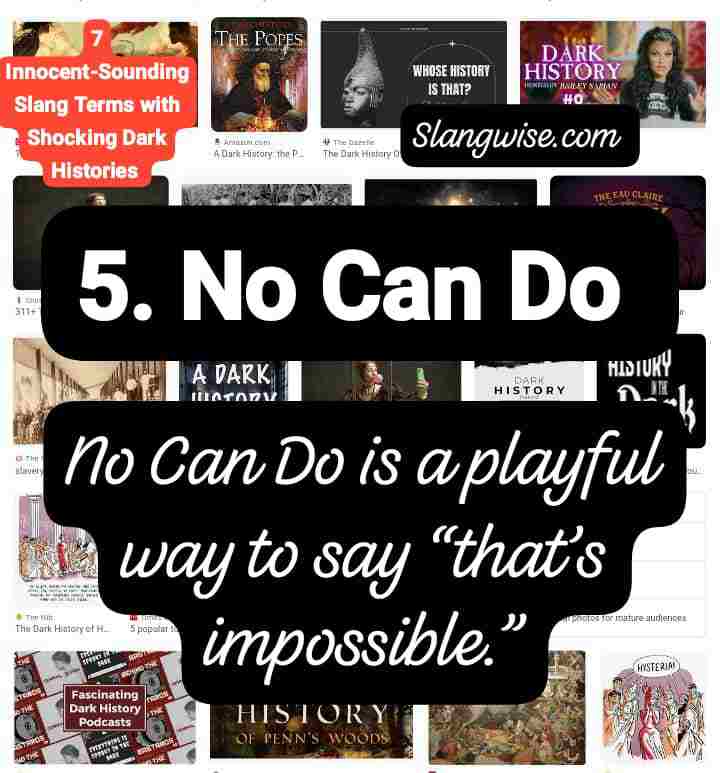
No Can Do is a playful way to say “that’s impossible.”
True origin: It was first recorded in early 19th-century America, this phrase imitates broken English often attributed to Chinese laborers and immigrants.
It reinforced racist stereotypes that Asian Americans were uneducated or linguistically inferior. Today, it still evokes a caricature of Chinese speech.
The Oxford English Dictionary cites its first appearance in written records disparaging immigrant workers.
6. Rule of Thumb
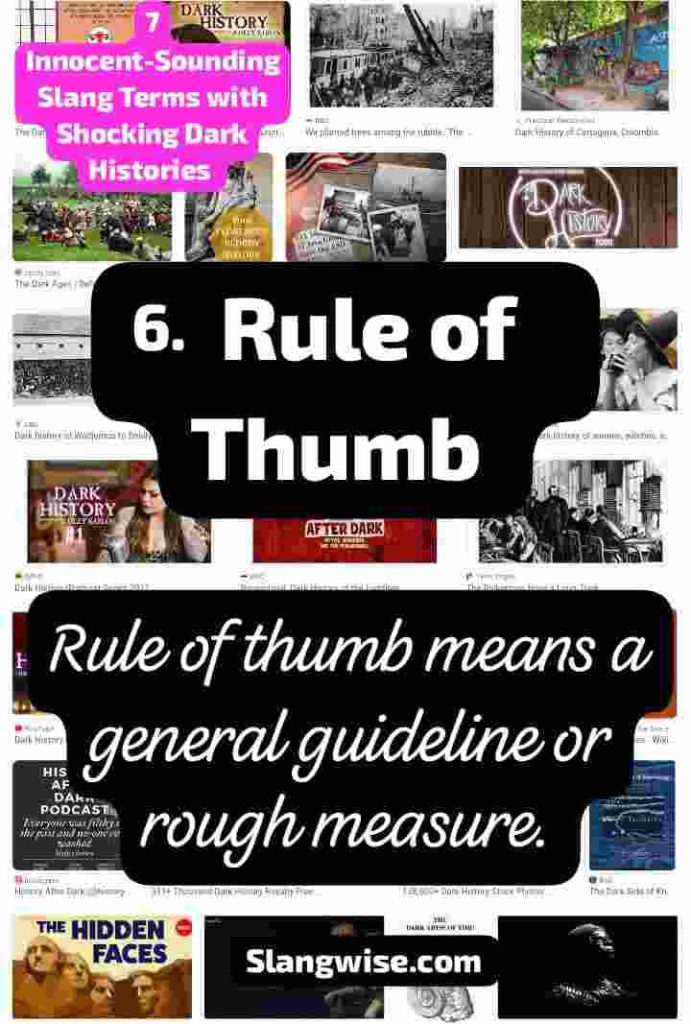
Rule of thumb means a general guideline or rough measure.
True origin: For years, it was said that English common law permitted a man to beat his wife with a stick no thicker than his thumb.
Although legal historians dispute that such a rule ever existed in court, the myth persisted and justified domestic violence for centuries. Even if the phrase’s legal basis is false, its violent undertones remain painful.
According to Legal scholars at Cornell Law School’s Legal Information Institute, it was explained that no formal “rule of thumb” ever appeared in statutes or case law.
7. Lame
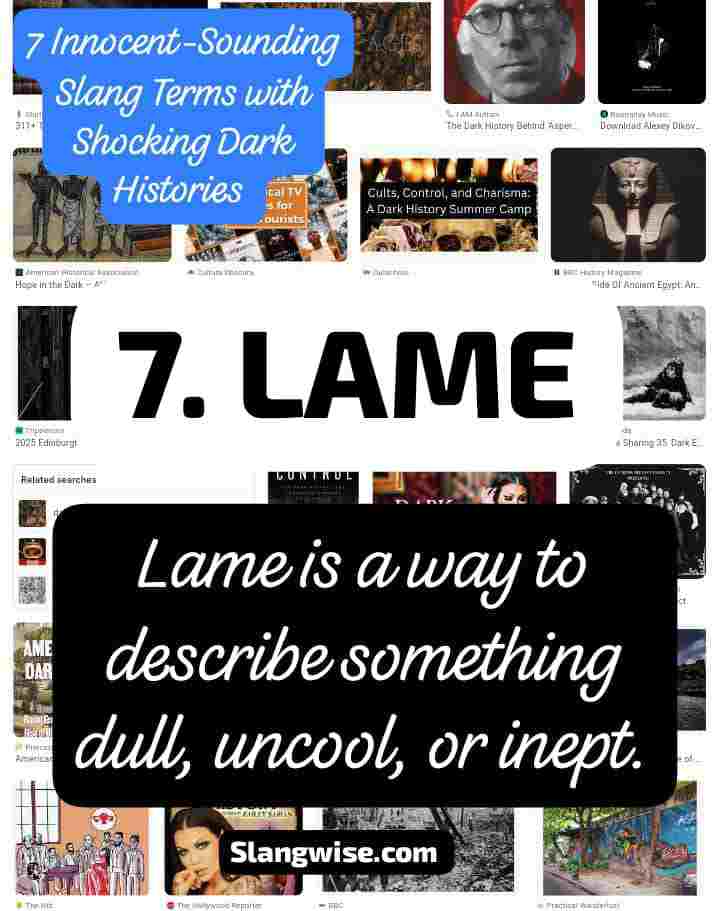
Lame is a way to describe something dull, uncool, or inept.
True origin: Lame originally referred to physical disability, someone unable to walk properly.
Over time, it morphed into a pejorative for anything undesirable. Using it to mean “boring” or “weak” devalues real struggles of people with mobility impairments and perpetuates ableist attitudes.
Disability rights organizations like the American Association of People with Disabilities emphasize moving away from ableist language such as lame.
Why This Matters
Everyday speech carries layers of history. These seven expressions, common in casual conversation, mask stories of oppression: from slavery rivers to Jim Crow balconies, from racist and anti-Romani slurs to ableist and sexist myths.
Language evolves, but echoes of injustice can linger. By learning where phrases come from, it becomes possible to speak more kindly, inclusively, and accurately.
Final Thought – Moving Forward
- Pause before using. When a phrase feels trivial, pause and consider its history.
- Choose alternatives. Replace “gyp” with “swindle,” “lame” with “unimpressive,” and “no can do” with “I can’t.”
- Educate others. Conversation is a chance to share knowledge, invite friends to learn why language matters.
- Honor experiences. Language adapts best when it respects the dignity of all communities.
Words are more than sounds; they are vessels carrying memory. By choosing phrases with respect and care, it’s possible to honor histories and build a more inclusive future.

